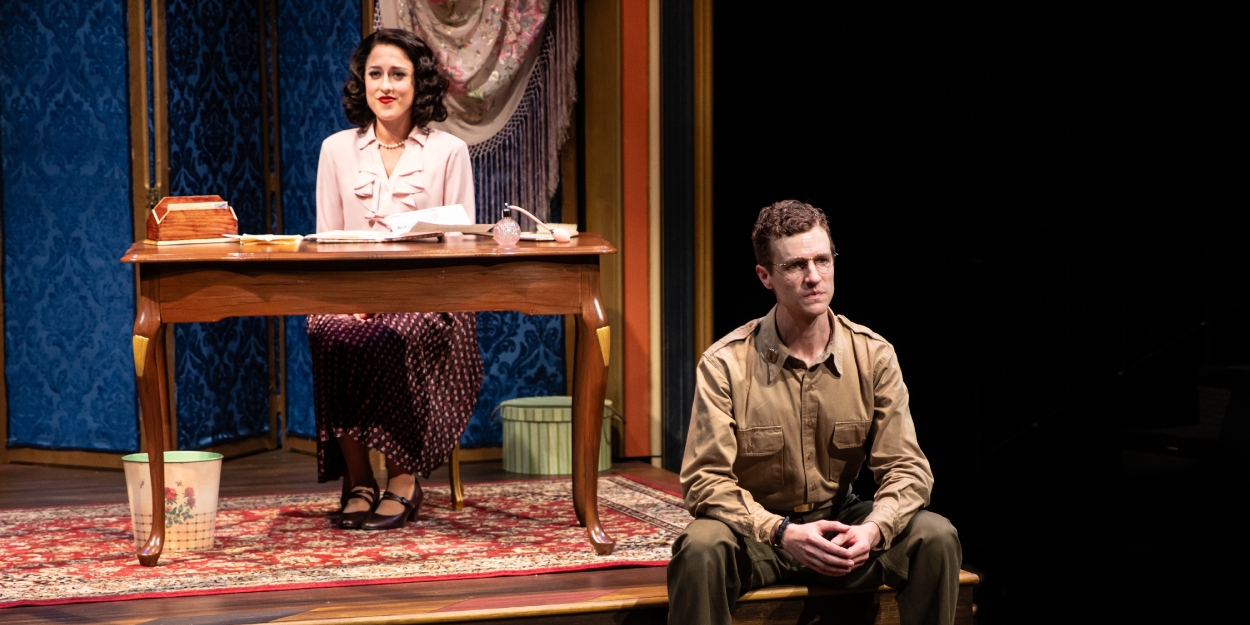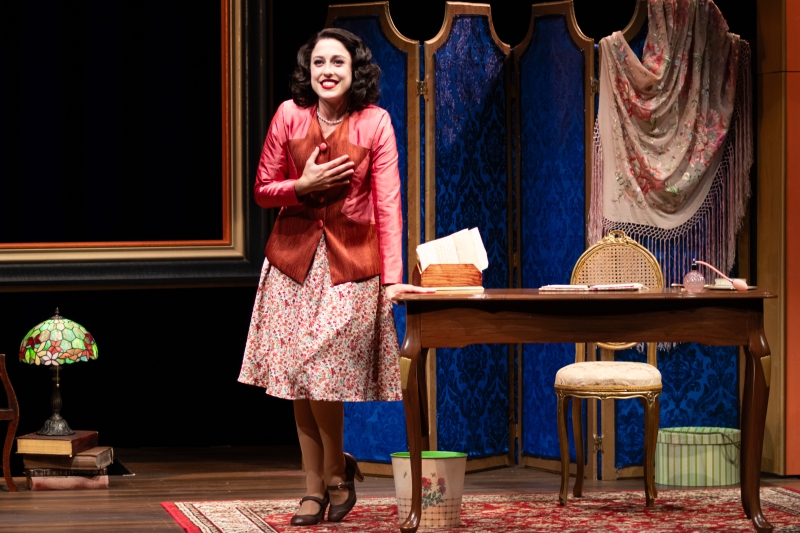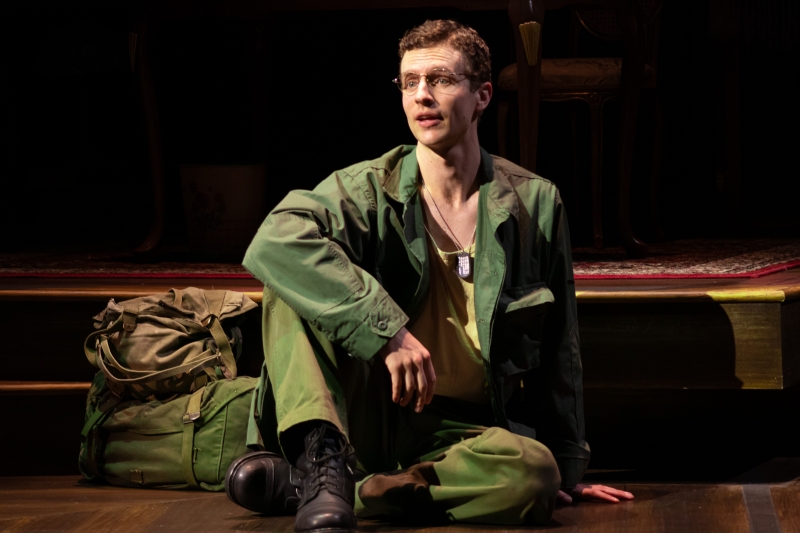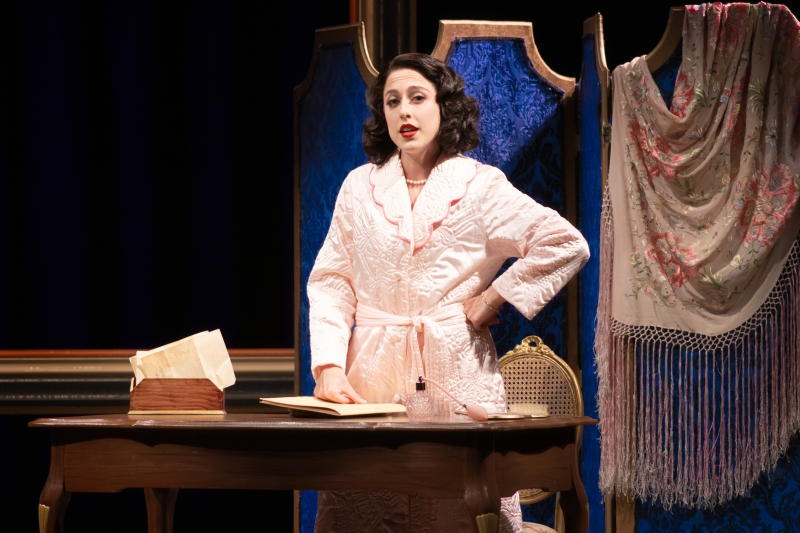Review: DEAR JACK, DEAR LOUISE at Alabama Shakespeare Festival
An intimate production in an intimate space.

Dear Jack, Dear Louise is a production that hits close to home for playwright Ken Ludwig . . . literally. This two-person drama tells the story of how Ludwig's parents "met" initially as pen pals and eventually grew into friends and to later love each other. Played against the backdrop of World War II, Dear Jack, Dear Louise is simultaneously personal and broad in scope--and a victory for the Alabama Shakespeare Festival.
In its marketing, the Festival has made it no secret that Jack Ludwig and Louise Rabiner are the playwright's parents. Because the audience knows that these two people eventually get together, the question is how and when that happens. With a war and thousands of miles keeping the two apart, it is a interesting situation to watch. I do not know how much of the story is fictionalized, but the fact that Dear Jack, Dear Louise is based on a true story makes it more compelling.

Director Risa Brainin stages Dear Jack, Dear Louise with a light touch. Jack and Louise speak their text of their letters, and Brainin has them often moving around the stage as if these words were part of a normal conversation. However, they deliver their lines while looking in different directions--not at each other. It is an effective technique that emphasizes that Jack and Louise are not physically interacting. Additionally, Brainin gives each character a portion of the stage with a table where they write their letters and use props, and Brainin has a smart rule that the other character should not physically enter that area. As a whole, Brainin's staging meets the challenge of naturalistically depicting the distance separating Jack and Louise while still being an intimate production in an intimate space.
Beyond the mechanics of Brainin's direction, I appreciated how artfully she could handle the changes in the play's mood. In the three years of the play's action, Jack and Louise experience many highs and lows, and Brainin effectively uses movement, stage business, and a keen understanding of human psychology to make these moments real. The mood shifts when Jack has to change delay their meeting, or Louise's joy in being cast in a play are forceful events that show Brainin's quiet directorial style that wisely eschews showiness.

Oriana Lada plays Louise as a brassy gal with a zest for life. Lada is a master of the comedic monologue, and her account of meeting Jack's family had many audience members grinning. One contributing factor to Lada's strong performance is her mastery of Louise's Brooklyn accent (with help from dialect coach Greta Lambert), which grounded the character in reality. What I appreciated in her performance, though, was Lada's ability to show Louise's emotional journey, whether it was in the trepidation in calling herself Jack's "girlfriend," or her helplessness in the face of war. It is a magnificent and flawless performance from beginning to end.
Pete Winfrey plays Jacob "Jack" Ludwig, an army physician who feels frustrated about the endless war and carnage he must confront. In Winfrey's portrayal, Jack is a shy, all-American boy. It is a subtler performance than Lada's, but that is merely a consequence to how the characters are written. Winfrey gets his juicy scenes, such as when talking about the futility of war, or when Jack shows vulnerability and guilt when admitting that he dated another woman while in San Antonio.

Both actors face a major challenge throughout the show: how to play a scene without looking directly at the other actor. Without that real-time feedback from another performer, the show runs the risk of becoming a series of "my-turn-your-turn" line recitations. Neither Winfrey nor Lada ever fall into this trap, and it is impressive that the two can keep their exchanges sounding natural for two hours. It is hard to make a connection with someone you don't speak directly to, but these two actors succeeded in doing so (much as the real Jack and Louise did through letters 80 years ago).
In a small venue, details matter because the slightest flaw is easy for an audience to see. That is why I am a fan of Costume Designer Val Winkleman's work in Dear Jack, Dear Louise. Winkleman had impeccable period costumes that did more to create the 1940s setting than anything else. Louise's outfits had replicated the style of the era, down to the seam in the back of Louise's stockings. Winfrey is dressed in the army attire of the time: much less glamorous, but it the costume serves as a constant reminder of the backdrop of the war.
The Alabama Shakespeare Festival's production of Dear Jack, Dear Louise is a show with lots of talent and heart. Ludwig's plays tend to be middlebrow popcorn shows, but this script goes beyond the clichés of romantic comedy to have serious moments and a rewarding ending. Dear Jack, Dear Louise is a lovely little show that is an enjoyable way to spend two hours.
Reader Reviews

Videos

